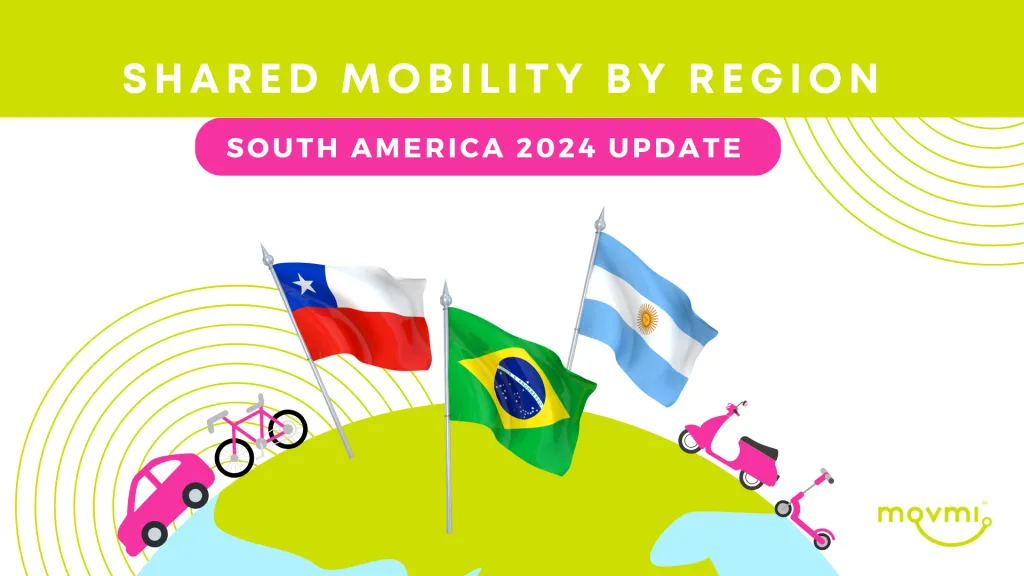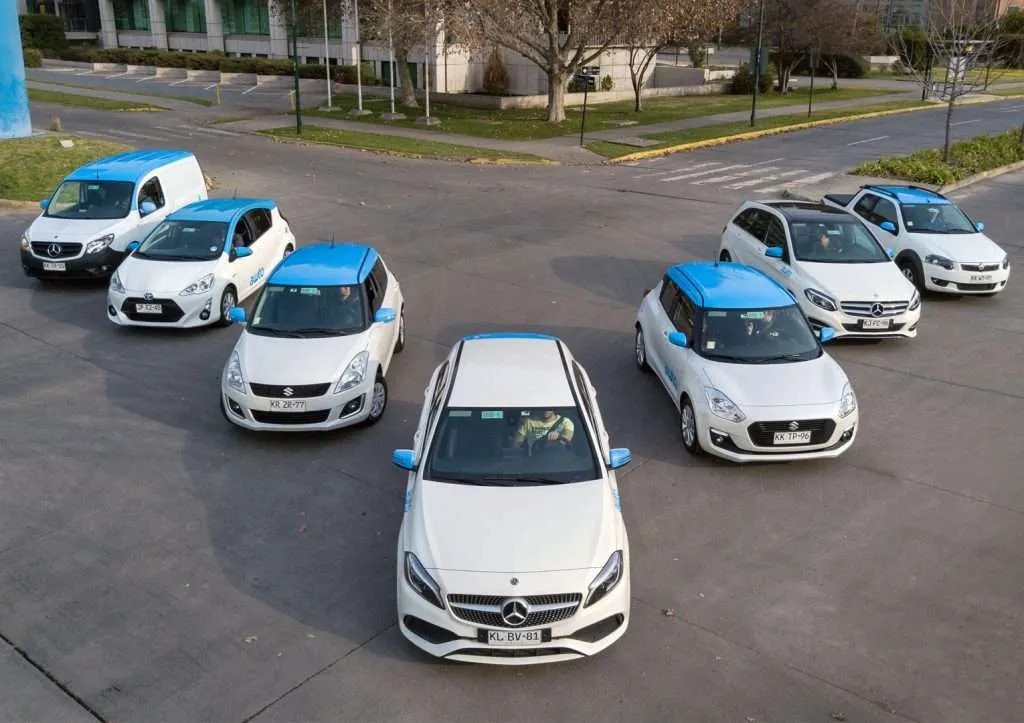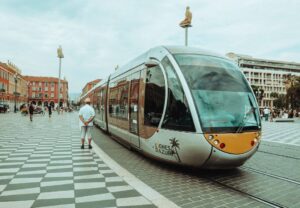Shared Mobility by Region: South America
Over the past five years, South America has seen a significant transformation in how people move around, thanks to rapid tech advancements, shifts in consumer behaviour, and new regulations that support these changes. Cities are growing fast, and more and more people own smartphones, which has pushed a lot of the population to start using services that allow them to share rides and vehicles to help reduce private car ownership. Individuals are on the lookout for travel options that are accessible, cost-effective and environmentally friendly and it’s in these areas that shared mobility really
South America’s shared mobility market is shaped by several prominent companies and emerging startups, each playing a pivotal role in creating a sustainable ecosystem. In this article we take a closer look at these leading players, highlighting their contributions and innovations within the shared mobility sector.
- 14 março 2024

South American Micromobility Solutions
New innovative apps and improved docking stations across the region have made it easier to access shared bikes, and with cities investing in cycling infrastructure, bike sharing has not only become more accessible but also a preferred mode of transport for many urban residents seeking reliable and eco-friendly travel alternatives.Tembici

Car Sharing in South America
Awto

MyKeego
Demand responsivve transportation
Liftango

Public transportation
As Latin America continues to urbanize and seek sustainable development paths, public transportation remains at the heart of discussions on improving quality of life, reducing environmental impact, and shaping the future of cities across the continent.Bus Rapid Transit (BRT)

Integrated Mobility & MaaS
99 & 99Pay
Women`s Safety in Transportation
NINA Mobility
 Source: https://movmi.net/blog/empowerwism-2023-top-3-finalists/
Source: https://movmi.net/blog/empowerwism-2023-top-3-finalists/
UpGirl
Comunidade e imprensa





